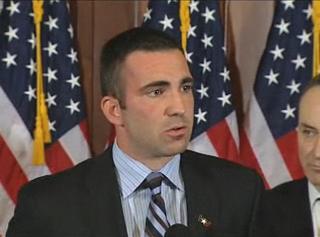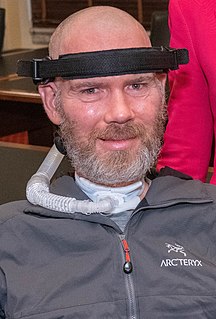A Quote by Richard Hammond
I had post-traumatic amnesia, five-second memory, it happens as a result of brain injury.
Related Quotes
It's not just professional athletes and soldiers who are at risk from traumatic brain injury. More than 1.7 million people a year sustain a traumatic brain injury, and about 50,000 of them die each year, according the Centers for Disease Control. There are both emotional and financial costs from these injuries.
Sometimes people who want to understand Haiti from a political perspective may be missing part of the picture. They also need to look at Haiti from a psychological perspective. Most of the elite suffer from psychogenic amnesia. That means it's not organic amnesia, such as damage caused by brain injury. It's just a matter of psychology.
I think the American people recognize is after a decade of war it's time to do some nation building here at home. And what we can now do is free up some resources, to, for example, put Americans back to work, especially our veterans, rebuilding our roads, our bridges, our schools, making sure that, you know, our veterans are getting the care that they need when it comes to post-traumatic stress disorder and traumatic brain injury, making sure that the certifications that they need for good jobs of the future are in place.
There`s three sort of fundamental things that happen when someone`s suffering from these issues [post-traumatic stress disorder ]. First, they get intrusive thoughts.The second issue is you become startled quickly.And the third key point is it`s avoidance.Those are the three sort of pillar fundamentals of what we consider post-traumatic stress, not violence against someone who`s close to you. There`s just a huge misunderstanding.
I think we've reached that point where we understand medically what we are doing to ourselves with these sports. In football, it's kind of hard to get the access that you want for the story and, of course, it's very long-term: the effects of the repeat concussions really don't hit until decades afterwards, whereas the traumatic injuries in extreme sports are very immediate. I realized Traumatic Brain Injury was a fascinating and important story that not had been told very much. I wanted to know more.
I have been diagnosed with Amyotrophic Lateral Sclerosis (ALS). It's a terminal disease with an average lifespan of two to five years post-diagnosis, and scientists don't know what causes it. ALS prevents your brain from talking to your muscles. As a result, muscles die. As a result, every 90 minutes people die. I am a person.



































